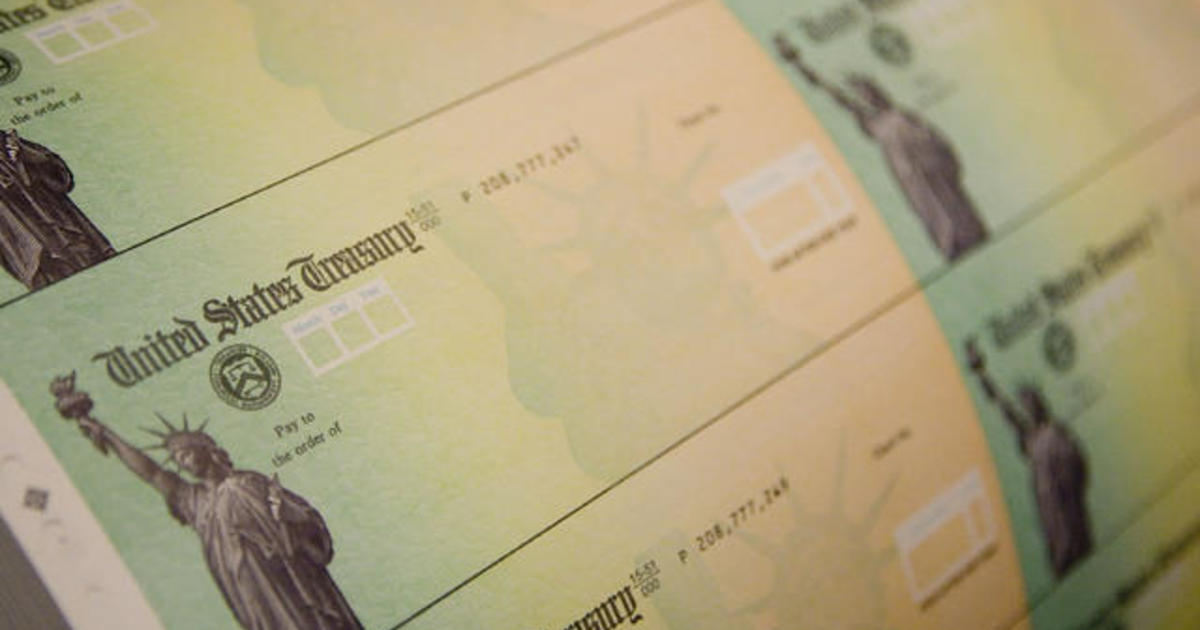If you’re one of those tax filers who had to rush to get their tax returns completed, here’s an opportunity to rejoice: you’ve been granted a month-long extension.
Tax Day 2021 has been moved forward to May 17 instead of April 15 without penalty or interest and gives Americans the chance to file federal tax returns , as the IRS implements massive tax code modifications resulting in the COVID-19 Relief Package.
However, there are some exceptions. The IRS will not extend the deadline for the first quarter tax estimated payments. However, not all states have extended their deadlines.
It’s a busy period. A lot of Americans have a lot of concerns about their tax checks, stimulus and unemployment assistance since the American Rescue Plan became law. As of now over 156 million checks were made in the third round to Americans during the 3rd round.
The IRS sends stimulus checks every week, as of now. Certain Americans are eligible to receive “plus-up” checks from the IRS, which will rectify any changes in the amount of money they’re due in light of their tax returns for 2020.
A lot of people are trying to finish their returns to be eligible for the latest stimulus assistance as well as have concerns such as: Should I file to file the return right now? Should I submit my tax return in order to be eligible in a third payment? When can I expect an “plus-up” amount?
Taxpayers also have issues ranging starting from the unemployment exemption to tax credits for children. Many would like to know when they have to pay state tax or if they are facing delay in refunds.
Here’s what you need to know about HTML0:
When will the “plus-up” payments when will they arrive?
The fourth installment of the payments under Biden’s American Rescue Plan included more than 1 million “plus-up” payments totaling greater than 2 billion to those who qualified for more money after their tax returns for 2020 are being completed as of Wednesday, the IRS declared Wednesday.
In some instances it is possible that a person will receive a different or greater amount of money depending on the processing of their tax returns. The ongoing supplemental payments could apply to people who received stimulus funds earlier in March. However, the first payments were based upon a 2018 tax return not the tax return for 2020 which was recently filed.
Subscribe to your copy of the Coronavirus Watch newsletter to your inbox.
Be safe and stay informed of the latest news regarding the spread of coronavirus
Delivery: Vary
Your Email
If your earnings fell this year and you earned considerably less than the amount that was listed on your 2019 income tax return, then you could be eligible for a new tax refund. Anyone who had a child or an additional dependent may also be eligible for more cash if this was not reported on their 2019 tax return, but is included on their 2020 tax return.
“Plus-up” or “plus-up” installments will run to be paid on an ongoing basis on a weekly basis according to the IRS stated that it will continue processing tax returns for the years 2020 through 2019. The recipients are households or taxpayers that did not qualify for a third stimulus payment according to their income in 2019 or earned less than the amount they were due.
What will the IRS make ‘plus-up’ payment?
You have received the stimulus money through direct deposit, it’s most likely how you’ll get the “plus-up” cash. The IRS hasn’t got your information then you could receive an alternative check on paper according to tax experts.
“If you haven’t submitted your tax return for 2020 make sure you file it,” recommends Dina Pyron who is the EY’s global leader. TaxChat, a tax preparation service offered by Ernst & Young. “Once you have filed your 2020 tax return and can qualify for the $1,400 benefit for yourself, your family and dependents, these payments will be either transferred directly into your bank account or you’ll receive another check.”
Who is eligible to be a third stimulus update-check?
The payment amounts to $1,400 for a single individual or $2,800 for a couple who file jointly, and the additional amount of $1,400 for each dependent child. Anyone earning between $75,000 and $75,000 receive all the benefits and married couples earning of up to $150,000. Payouts decrease for incomes over these thresholds, and then gradually dropping beyond $80,000 for singles and $160,000 for married couples.
If you’re a head of your household but you are not married, what will your payment for stimulus differ?
A taxpayer who is a Head of Household isn’t eligible if their annual income exceeds $120,000 There is however a phase-out period that runs from $112,500 to $120,000. In other words, a Head Household will be eligible for an incentive payment of $1,400 for themselves and every qualifying dependent that has an Social Security Number, regardless of the age of the person, as per Mark Steber, chief tax information officer at Jackson Hewitt.
Do I have a chance of qualifying for a third test in the event that I file my application now?
If you weren’t eligible on the second round of the stimulus update checks for stimulus based on the year 2019 or 2020, but you are eligible for 2020-based checks the next best thing to do is to file your 2020 tax returns as soon as you can tax experts advise.
“If the IRS can process the tax in time, they’ll utilize the most recent year to determine if they qualify taxpayers for the next cycle of stimulus funds,” says Meredith Tucker the tax chief of Kaufman Rossin, one of the biggest CPA and consulting firms within the U.S.
Steber agrees.
“Filing an early tax return is always the best option and this year has been proven with the stimulus checks for taxpayers who’ve already filedtheir tax returns,” Steber says. Steber. “As to filing today and still receiving a tax refund however, the IRS isn’t providing specifics about the timing or impact, but it’s certainly possible, particularly when your tax situation has changed between 2019 and 2020.”
If I’m not eligible to receive this third stimulus update check in 2019 based on my income, but I qualify have a 2020 income Can I make an appeal with the IRS even if they’ve already issued my check?
The IRS has until the close of the year to issue stimulus funds for 2021 and will review the tax returns for 2020. While the IRS continues to process tax returns, more tax payments will be made tax experts predict.
If you’re not yet filing your taxes for 2020 and you think you’re eligible depending on your income level, you must submit your tax returns for 2020 to ensure that the IRS has the most up-to-date information.
It is expected that the IRS continues to pay payments from stimulus every week and will also process any tax returns that have been filed recently. If you don’t get an incentive or tax credit, the IRS has said that they will reconcile the situation later in the year, as per Curtis Campbell, President of TaxAct which is a software for tax preparation.
“If the 2020 tax return hasn’t been filed due to a reason or for any reason, the IRS will disregard the 2019 tax return data. Then, following the tax season is over, if a taxpayer submits their 2020 tax return and it’s processed the IRS will perform a “true-up to verify the difference between the 2019 and 2020 data” Campbell says. Campbell.
If you didn’t receive an income tax refund for their income in 2019 and filing a return for 2020, they must file a new tax return, and the IRS will recoup their money according to their latest report, IRS Commissioner Charles Rettig told lawmakers last month during a the testimony before Capitol Hill.
What if I want to claim an Recovery Rebate Credit on my 2021 taxes even if I do not receive a second check?
If you’re eligible for a third installment however you do not receive it, you may take advantage of an Recovery Rebate Credit on your 2021 taxes next year, as per Tucker.
“If you’re not eligible for round three due to the fact that the tax return you filed for 2020 was not filed or processed on time and you’re not eligible for round three, you’ll be eligible for an exemption on your taxes for 2021,” says Tucker.
Do federal beneficiaries qualify for a stimulus update check?
Yes. After delays, the biggest portion of the fourth installment of Biden’s American Rescue Plan went to Social Security beneficiaries who didn’t submit a 2020 or 2019 tax return, and did not make use of the non-filers tool last year as the IRS stated.
Over 19 million of the payments that totaled greater than $26 billion were made to beneficiaries, which includes Social Security retirement, survivor or disability beneficiaries, as per the agency.
Over 3 million of the payments that totalled more than $5 billion, were made directly to Supplemental Security Income (SI) beneficiaries. In addition, nearly 85,000 payments in excess of $119 million, were given towards Railroad Retirement Board beneficiaries.
What happens to VA beneficiaries?
Payments to VA beneficiaries who did not submit either a 2019 or 2020 tax return and did not use the non-filers tool this year will be paid on April 14th The IRS announced.
“If there are no other issues there are no further issues, the IRS anticipates that it will start processing the VA payment files by the end of this week” the agency stated. “Because most of the payments will be made electronically, they should arrive at the time of the official day of 14 April.”
Is there a maximum amount of checks that a household could be eligible to receive (say 10 checks for an entire household with 10 members)?
All dependents will be eligible for incentives in this third installment. The payments should cover all eligible dependents , and will be distributed in a lump sum to the person who is entitled to the benefits, as per Tucker.
“There is no limitation set by law, but regular IRS balances and checks require a second look at a tax return that has 10 family members, but it can be legal” states Steber. “Remember that anyone who is a dependent of a taxpayer won’t get their own tax refund, rather they will be listed present on their parent(s) return , giving their parent(s) the additional cash.”
Before, if you owned children who was older than 16 or was an adult child, the latter did not receive an incentive. The payment would be $1,400 per dependent child. Families with a qualifying income will receive one payment of $1,400 for each qualifying dependent on their tax returns that includes students at college as well as parents of disabled adults, and grandparents.
See more articles techpairs



